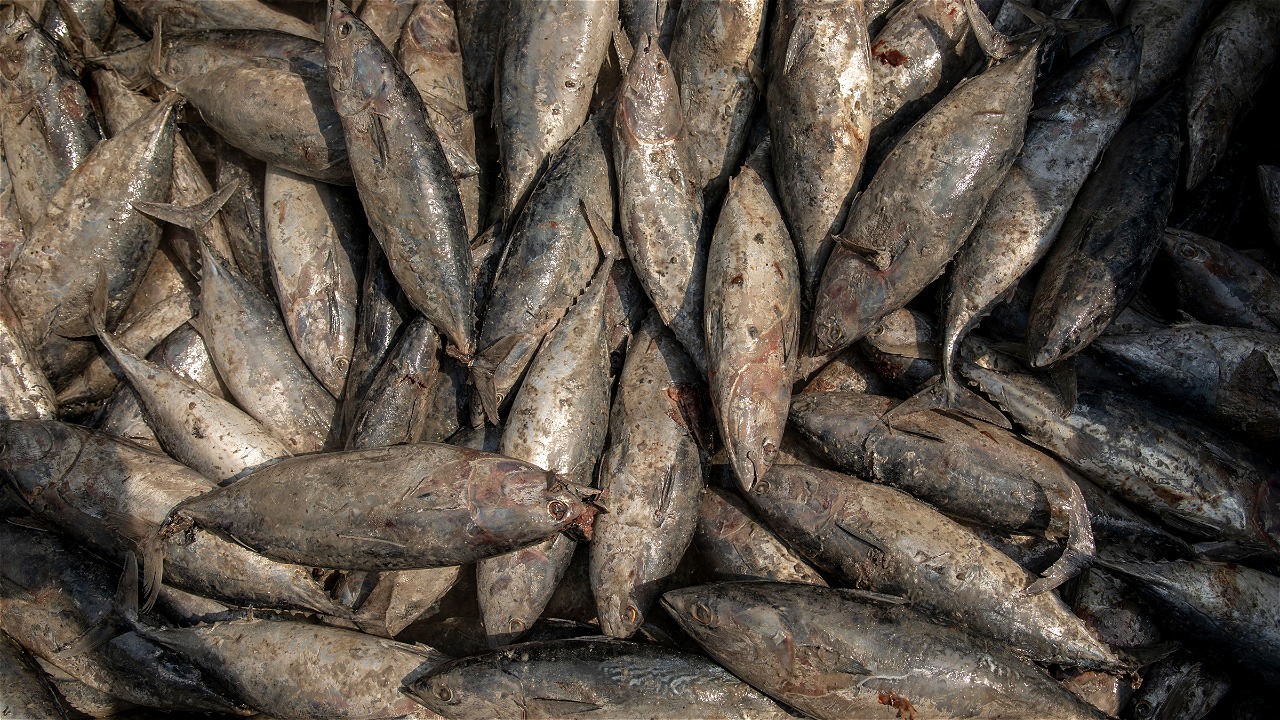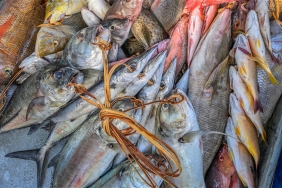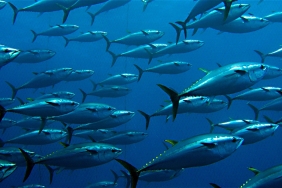SAVE THE TUNA BEFORE IT'S TOO LATE
Bali - Tuna populations are dwindling. The latest West Pacific and East Asian Seas (WPEA) report says there has been an alarming decline in regional stocks of skipjack and bigeye tuna. The future of tuna fisheries dominated the Western and Central Pacific Fisheries Commission (WCPFC) Regional Meeting that took place in Bali December 3-8. 480 delegates from WCPFC member countries, including Indonesia, formulated an agreement on tuna fisheries management measures from each member country in the central and western Pacific Ocean region.
Based on the report and the meeting, WWF urges the Government of Indonesia to immediately take steps to improve fisheries management from upstream to downstream, so that Indonesian tuna fisheries commodities can be sustainable. Abdullah Habibi, WWF Indonesia's Capture and Aquaculture Fisheries Improvement Program Manager stated, "The steps to improve management for tuna fisheries include the preparation of a utilization strategy (Harvest Strategy), regulation of its utilization (Harvest Control Rule) in archipelagic waters that must be in line with the WCPFC, compliance with RFMO (Regional Fisheries Management Organization) standards, especially on the fulfillment of accurate data, and placement of observers onboard."
This is indeed important when referring to data from the Ministry of Maritime Affairs and Fisheries (KKP) which states that Indonesia is the country with the highest tuna potential in the world. In 2014, total tuna production reached 613,575 tons per year with a value of Rp 6.3 trillion per year.
Minister of Marine Affairs and Fisheries Susi Pudjiastuti has issued Ministerial Regulation No. 4/Permen-KP/2015 on the Prohibition of Fishing in the Fisheries Management Area (WPP) of the Republic of Indonesia 714 which includes the Banda Sea and Tolo Bay. The area is the spawning ground and spawning ground of yellowfin tuna. Other WPPs also need similar protection to ensure the sustainability of tuna.
To support the improvement of the fisheries sector towards sustainability, WWF-Indonesia has established the Seafood Savers scheme. Seafood Savers is an effort to facilitate fisheries improvement on an industrial scale that prioritizes the Business to Business scheme. In addition to Seafood Savers, WWF has also developed guidelines on better fisheries practices in a series of BMP (Better Management Practices) documents for capture fisheries, bycatch and aquaculture, for entrepreneurs and fishermen. These guidelines aim to assist fishers in catching biota in an environmentally friendly and sustainable manner, including handling and packaging processes.
Meanwhile, Bubba Cook, Western and Central Pacific Tuna Program Manager - WWF Smart Fishing Initiative Global Marine Program stated that the WCPFC's political push is very important for the relevant Governments to take action for the common good. "I am worried that tuna fisheries in this region will face a decline in catches if no immediate action is taken," he said.
For more information, please contact:
- Abdullah Habibi, Capture and Aquaculture Fisheries Improvement Manager, WWF Indonesia
Email: ahabibi@wwf.or.id, Phone: +62 811 8114193
- Dwi Aryo Tjiptohandono, Marine and Fisheries Campaign Coordinator, WWF Indonesia
Email: daryo@wwf.or.id, Phone: +62 811 4803343
Note to Editor:
- Seafood Savers is an idea that was formed with one of the main objectives to give appreciation to fisheries business actors who have implemented sustainable fisheries practices. This appreciation is seen as an important thing to do as a form of incentive for businesses for their efforts in running a responsible fisheries business. Visit http://www.seafoodsavers.org
- WWF Sustainable Fisheries BMPs (Better Management Practices) were developed based on WWF-Indonesia's fisheries team's learning with fishermen and farmers in WWF-Indonesia's working areas. These BMPs also refer to the principles of sustainable fisheries certification supported by WWF, namely the Aquaculture Stewardship Council (ASC) for aquaculture and the Marine Stewardship Council (MSC) for capture and bycatch fisheries. Visit http://www.wwf.or.id/berita_fakta/publications/





